Student recruitment using peer-to-peer effect
According to a recent study conducted by Intead and Unibuddy, student ambassadors are becoming an increasingly credible source for prospective students considering studying abroad. The study, titled “Peer-to-Peer Student Conversations,” also shows at what stage of the recruitment funnel student ambassadors have the most influence and how the use of this resource varies between graduate and undergraduate students.
Data from a survey administered to international students at 40 universities in the United States and the United Kingdom in the spring of 2019 and from over 370,000 peer-to-peer conversations hosted on the Unibuddy platform form the basis of this report. Student ambassadors (current students at the institution in question) spoke with prospective students from over 217 countries and territories.
“Student-to-student connection has taken over as the most influential and helpful factor when deciding where to apply to university … even more influential than friends and family. This is a huge shift for universities and colleges. Students are the heart and soul of institutions so it’s no surprise that prospective students value the authenticity of their experience above all else.” according to Unibuddy.
The bigger picture
According to the research, student ambassadors are most effective when working with prospective students during the application and enrollment phases of the university admissions process. The report concludes that “peer-to-peer interactions do not work as an attraction tool but rather as a resource that students use to deepen their knowledge of institutions they are already familiar with.”
Influential ambassadors
While nearly half (47%) of students said that friends and family were the most helpful resource when deciding which university to apply to, 57% said that online conversations with student ambassadors were the most helpful resource. Students value ambassadors’ “unique and honest perspectives on academics, student life, and local culture,” the report says.
According to the report, one respondent said something to the effect of, “The admission representatives give honest information as well most of the time, but the students provide a more realistic day-to-day perspective.” They know more about the practical issues.”
This quote exemplifies the greatest benefit that student ambassadors can bring to the recruitment process: as current students themselves, ambassadors know firsthand what is important to their fellow students. They speak the same “language” – the language of their generation and that generation’s priorities – and they know what can make or break a study abroad experience.
Sample student ambassador profiles from Queen Mary University of London
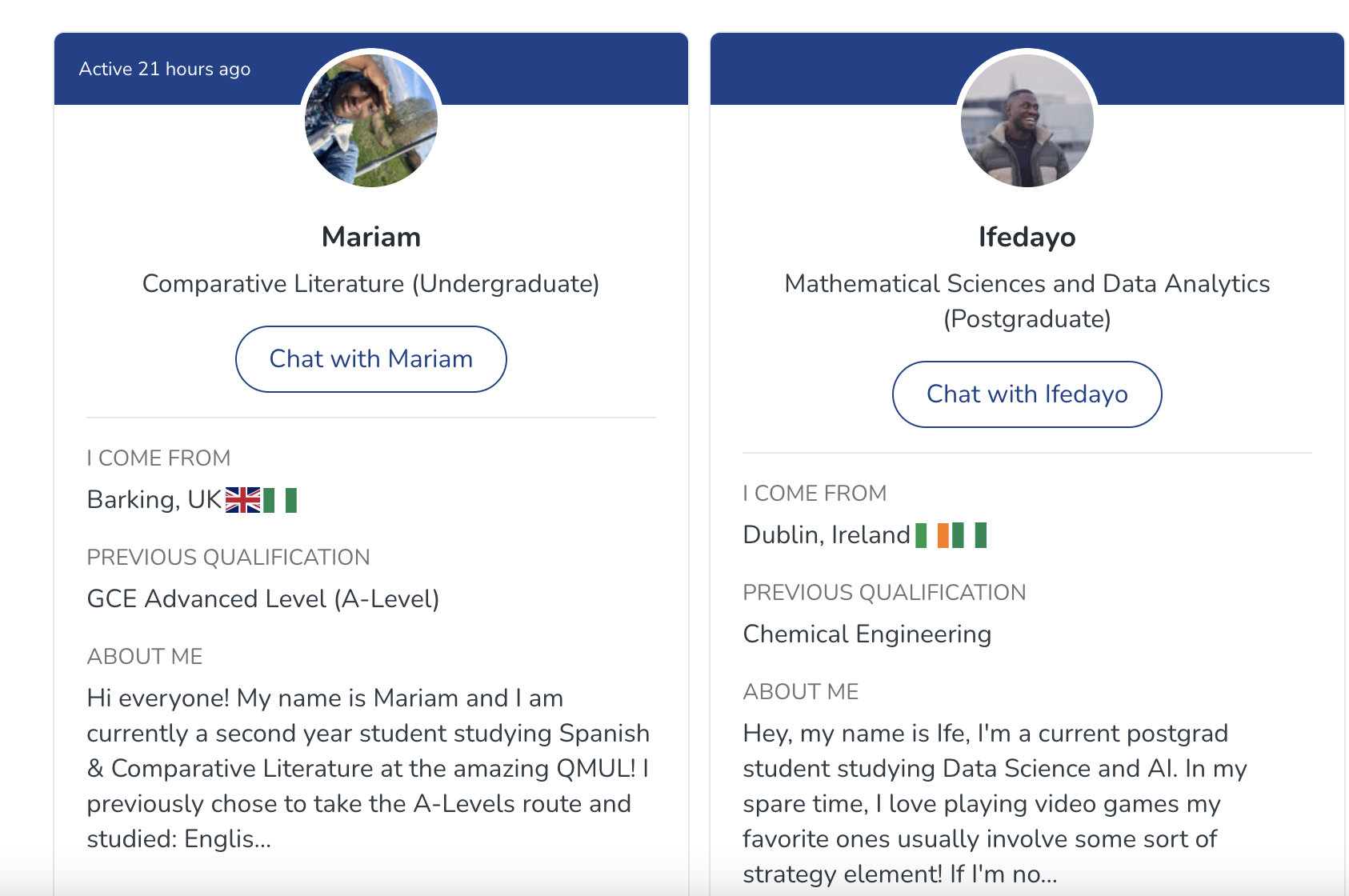
Interactions vary by region
Student ambassadors were found to be even more helpful than family and friends by students from Africa and Europe, as well as by undergraduate students.
The survey inquired as to the most helpful pieces of knowledge that student ambassadors could impart. Academic information, general information, student life and campus culture information, application and procedures, a unique student perspective, a generally helpful resource, personal encouragement, a sense of belonging, clarity to specific questions, and good general advice are listed in order of which were determined to be most helpful to the majority of students surveyed.
Nonetheless, there were differences. Students in Asia and Europe found the academic advice provided by student ambassadors to be the most useful, while those in Africa appreciated the positive reinforcement they received.
Graduate students are more specific
In contrast to the undergraduates, the graduate students wanted more specific information, including “academic information, ranking, curriculum, concentrations available and faculty, among other details that will help them evaluate their decisions based on career outcomes.”
This finding can be used to inform the selection of student ambassadors for different academic levels, as graduate students tend to have more specialized interests than undergraduates.
Pairing student ambassadors with students
The fact that they were paired with someone who had similar academic interests was the single most important factor for students. The fact that they were paired with someone who had similar academic interests was the single most important factor for students. Students were more likely than those from other regions to want to chat with ambassadors who shared their ethnicity or country of origin, the research found.
Applying and enrolling
Sixty-seven percent of those who used the chat system before applying for admission accounted for the 65 percent of students who ultimately applied to schools that had student ambassadors available to chat. This demonstrates the incredible value that student ambassadors can represent in the recruitment process, as these students were aware of the university but had not yet decided to apply. A student may need that last little push to move from indecision to action, and they may give it to them.
A large percentage of respondents (74%) said they were more likely to apply after speaking with a student ambassador, but only a slightly smaller percentage (53%) said they were more likely to enroll.
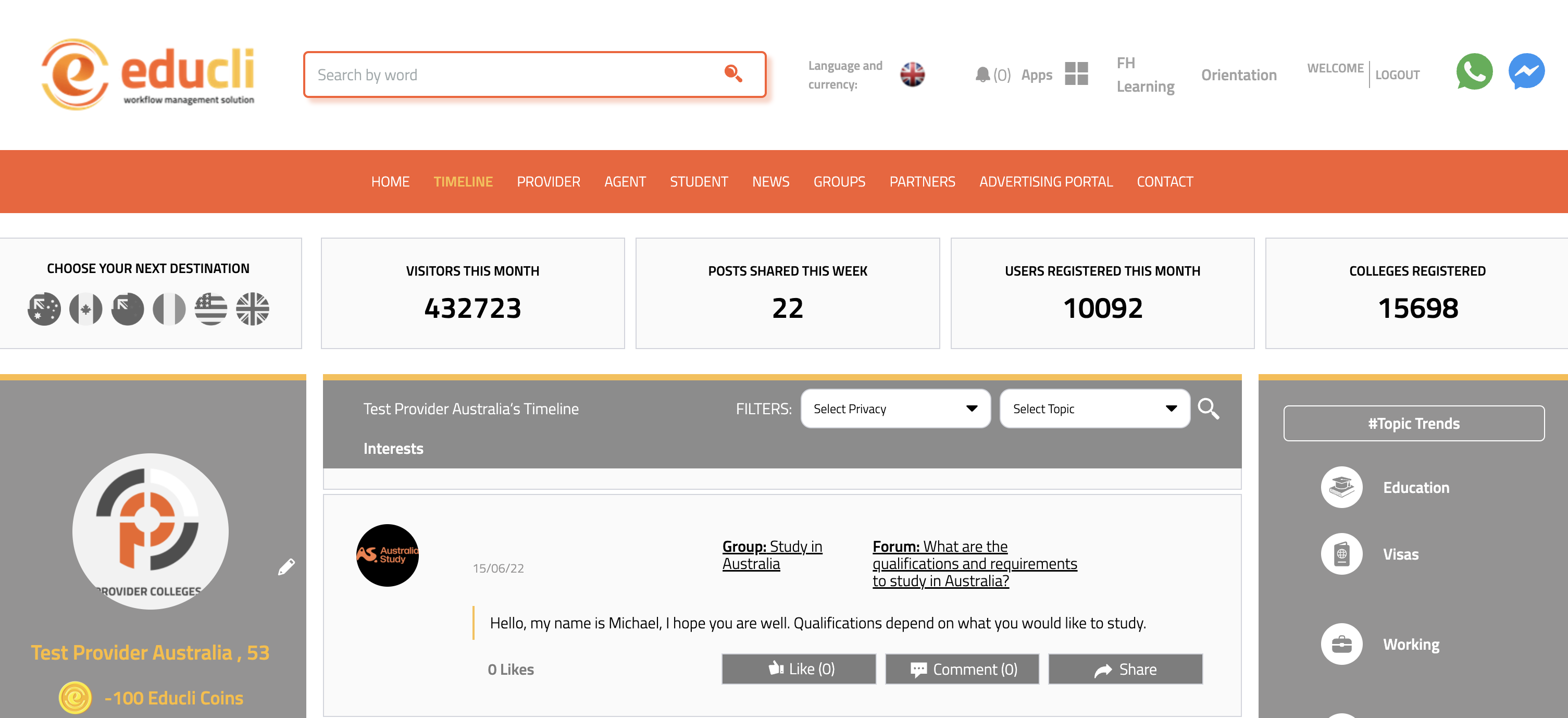
Educli’s eduspace – making new connections
Pioneering in its use of real-time chat and peer-to-peer interactions, Educli’s eduspace aims to connect prospective students with current students and educational providers in a streamlined manner. Eduspace recognizes that connecting with an ambassador who is both academically qualified and culturally familiar can have a profound impact on students. With this individualized strategy, students are more likely to find the right academic fit, leading to a richer, more meaningful learning experience.


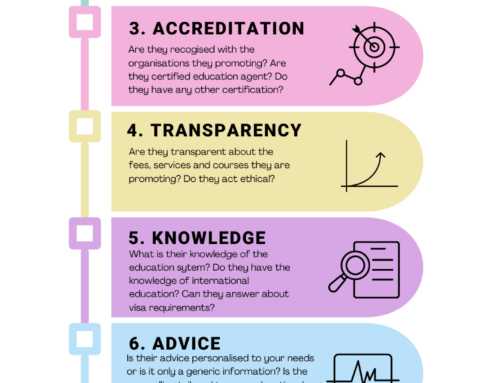
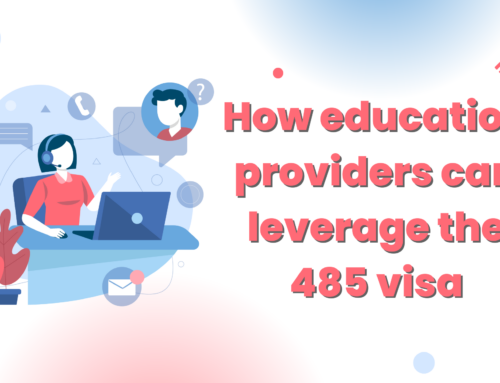
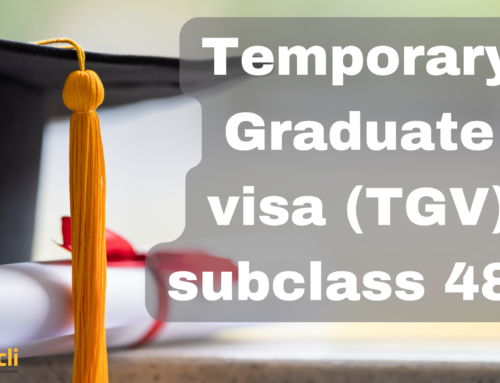
Leave A Comment